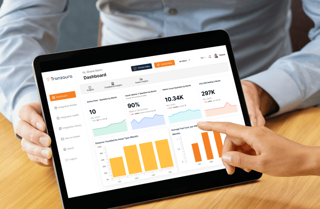Cost efficiency, legal compliance and centralisation are the three key factors that are powering the fleet software market in 2010, reports fleet software market leader CFC Solutions.
The company says that these are the top three concerns of employers with company cars and vans, whether they are new purchasers of fleet software, those looking to upgrade existing systems or established users who want to get the most out of their fleet IT.
Neville Briggs, managing director at CFC, said: “It is no surprise but the recession and the slow growth in the economy that has followed have very much taken the fleet software market back to basics. Users want to focus on minimising costs while ensuring that they meet all of their legal obligations regarding health and safety.
“Some of the factors that were dominant in fleet software during economically brighter times have fallen off the radar almost completely, notably fleets who ran very HR-dominated policies that were centred on employee recruitment and retention.”
Briggs said that the most interesting new trend that had emerged during the recession was the increasing use of centralisation as a means of gaining fleet cost control.
He explained: “Most of the cost control measures that fleets have adopted over the last couple of years using their software have been well established techniques, such as the use of exception reporting to minimise fuel and maintenance costs.
“However, increased centralisation is something that has not been seen in the fleet industry for decades but is something that is very much on the agenda. Larger organisations that have subsidiaries and divisions have been clawing back devolved fleet operations to head office – both to minimise the headcount needed to run the fleet but also to put overall fleet policies in place and maximise their spending power.”
Briggs added that, perhaps surprisingly, a desire to minimise CO2 was something that remained on the fleet software agenda.
He said: “There is a school of thought that, in a recession, the green agenda becomes an unaffordable nicety. However, many fleets seem to have come to the realisation that a low CO2 policy can cut fuel costs in exactly the same way that a proper fleet health and safety policy can minimise accident and insurance costs. The CO2 reporting features in our software remain very popular.”
Briggs concluded that cost efficiency, legal compliance and centralisation were likely to remain the principle motivators of the fleet software industry for some time to come.
He said: “While economic growth remains sluggish and especially while there is the threat of a W shaped recession, cost control in various forms will remain very much the prime motivator for the sector.”
For all the latest advice and information on fleet management, have a read of our fleet operations section.

















Login to comment
Comments
No comments have been made yet.